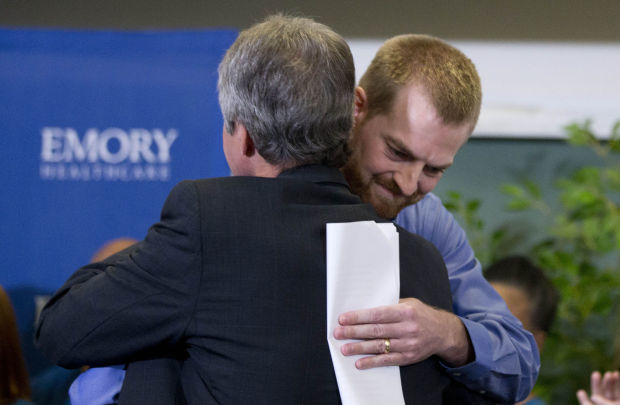A new federal appellate court ruling could eventually give the public a better idea how the Food and Drug Administration decides how and when dying people can get access to unapproved medicines.
In an unsigned ruling, a three-judge panel of the 9th Circuit Court of Appeals found the federal agency did not prove that its denial of such information, requested by the Goldwater Institute, was within the legal scope of what it could withhold.
The judges said the denial of the institute’s request for information is “inconsistent with the Freedom of Information Act’s pro-disclosure purpose and the requirement that we interpret its exemptions narrowly.”
The ruling has to do with drugs the FDA approved for the treatment of Ebola during the outbreak a half a decade ago.
It does not guarantee that the Goldwater Institute will get the information it wants. Instead, the ruling sends the case back to the trial judge, who originally sided with the FDA, and tells her to reconsider her decision.
But the timing is auspicious, coming as there are efforts to discover both a vaccine to deal with COVID-19 as well as a drug to treat those who are infected with the novel coronavirus.
The information being sought could shed light on who might get access to the drug — and how the FDA determines that — ahead of formal approval.
Those questions are why the Goldwater Institute pursued the issue even after the end of the Ebola threat — and why the ruling is timely, said Jonathan Riches, an attorney with the institute.
Goldwater descries itself as a think tank that lobbies and sues over free-market issues.
“Any time there’s a public-health crisis, Americans, I think rightfully, start asking questions about how the FDA makes drugs available, what approval processes work in terms of health care,” he said.
Riches said the FDA should be applauded when it makes medicines available to the people who need it, especially in a health-care crisis.
“But it also shouldn’t keep that process a government secret,” he said. “We have a right to know how those decisions are being made.”
The legal dispute traces its roots to 2014 when Dr. Kent Brantly and Nancy Writebol, aid workers who had been treating patients in west Africa, were infected with the Ebola virus, for which there is no known cure.
The FDA agreed to allow them to be administered ZMapp, a drug which had not cleared even preliminary review to allow it to be tested on humans. The two eventually recovered and wrote about it, which is why their names are known despite the records not being made public.
Riches sought information on how all that happened.
His lawsuit relied on the fact that FDA itself has a “compassionate use” exception from its requirement for final approval before a drug can be used. That is the one that requires a balance between harm and benefit for severely ill patients, the one that was used to give ZMapp to the two patients with the Ebola virus.
When the FDA refused to disclose the information, he filed suit in 2015 in federal court.
In a ruling last year, U.S. District Court Judge Susan Bolton said federal law has a “strong presumption of disclosure.”
But Bolton said the records being sought are part of what the FDA considers an “investigational drug application.” And she said these files contain information designed to be kept confidential to promote “candor” by companies seeking agency approval.
The appellate judges, however, said the FDA was putting too many items being sought under the umbrella of needing to be held confidential.
For example, they said, of the 58 records Goldwater wants, 41 are internal FDA emails and three are FDA emails to others.
Only 11 of the records sought are correspondence from those involved in developing the investigational new drug, as it is classified.
“Nor do the affidavits submitted establish that the withheld documents contain confidential commercial or financial information,” the judges said.
In sending the lawsuit back to Bolton, the appellate judges said the FDA may rely on affidavits to establish that certain documents are exempt from disclosure.
“But it must sufficiently explain why the documents qualify,” they said.





